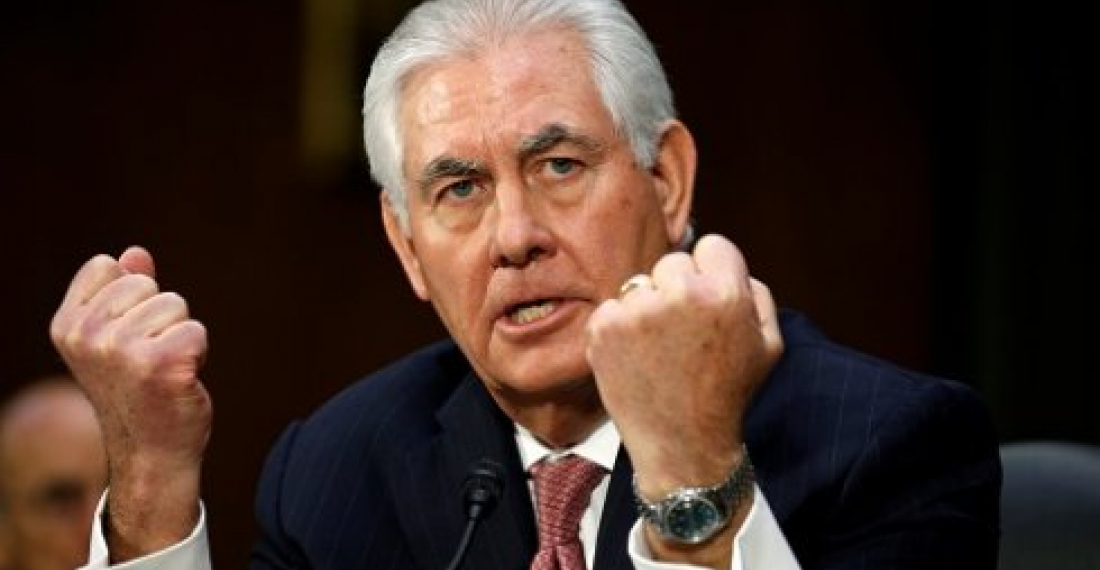Intensive diplomatic contacts between Turkey and the United States are expected over the next days as diplomats and officials on both sides try to defuse a crisis in the relations between the two NATO allies.
US Secretary of State Rex Tillerson will visit Turkey next week as part of a regional tour that will also take him to Jordan, Lebanon, Egypt and Kuwait, American diplomatic sources confirmed on Thursday (8 February).
Tillerson will visit Turkey to discuss regional and bilateral issues with senior Turkish officials. A State Department statement announcing his travel did not specify a date or location for his visit, nor did it lay out whom he would meet.
Other diplomatic contacts between the two countries are also expected over the next days. US. National Security Advisor H.R. McMaster is also expected to visit Turkey over the weekend.
It has also been announced that US Defence Secretary James Mattis will meet with his Turkish counterpart Nurettin Canikli in Brussels next week amid U.S. concern over Turkey's plans to launch a military operation in Manbij, Syria.
The U.S. will continue to work with Turkey at "the highest levels and all the way down through the military level," Mattis told reporters during a visit to the Pentagon's press office on Thursday.
"We will continue to work with our NATO ally [Turkey], and I will see their minister of defense in Brussels next week," he added.
Mattis was referring to Turkey's plan to launch a military operation in Manbij, a strategically important city west of the Euphrates River in northern Syria, as part of "Operation Olive Branch."
Manbij lies northeast of Aleppo but just south of the Turkish border.
Washington has voiced concern about the safety of U.S. troops in Manbij amid Turkey's ongoing operation in northeastern Syria.
commonspace.eu with Hurriyet Daily News, Reuters and Daily Sabah
photo: US Secretary State Rex Tillerson (archive picture)






